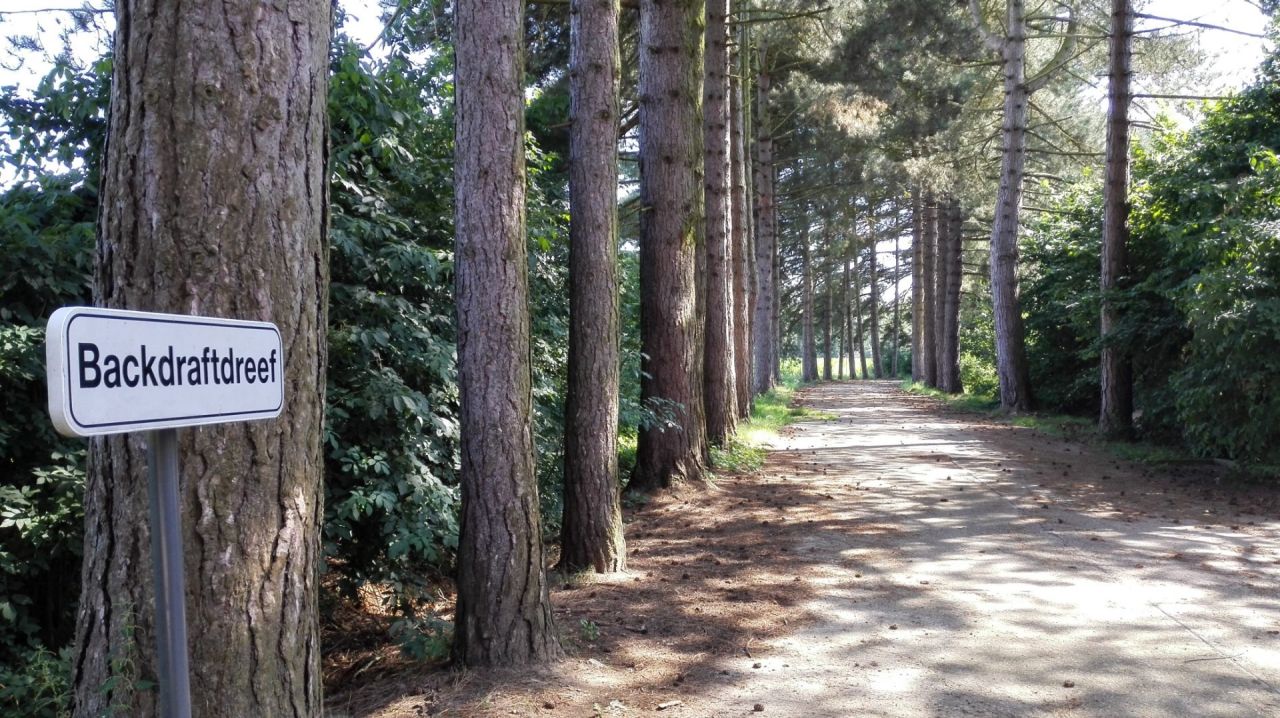Environment

The entire Province of Antwerp is ISO 14001 certified.
As a subsidiary of the Province of Antwerp, we also participate in strict internal and external environmental audits. For years now, we have been proud to have been awarded the international ISO 14001 environmental certificate, proving that the environment is close to our hearts.
Firefighter training
We burn dried untreated wood, clarified petrol (without additives), propane gas and wet straw. We also work as much as possible with artificial smoke during training. This white theatre smoke makes an evacuation training very realistic.
In our training courses, we sometimes work with hazardous material, which is unavoidable. An ammonia training course or measuring a radioactive source after a terrorist scenario, for example, involve risks. But we only use the smallest possible quantity needed for an effective training in a responsible setting. It goes without saying that, as a government institution, we take environmental legislation serious in all our activities.
The Province of Antwerp is going to save 18 million litres of drinking water per year
During the construction of our new industrial training centre for heavy industrial fire-fighting, the province invested in an innovative water treatment system. Thanks to the new system we are drastically reducing the use of tap water in fire-fighting training and as a training centre we are becoming an example in terms of sustainability. The provincial government is investing no less than 2.741.833 euros in the infrastructure and 660.868 euros in the water purification system.
We are developing a unique closed-circuit system to recycle the used fire-fighting water from the two training areas. The settling tanks send the water to the water purification plant that purifies it to the same purification quality as surface water. All our household wastewater is also connected to this plant. The water then ends up in a large underground buffer basin of no less than 460.000 litres. From here, a hydrant network was set up to which all the fire hoses will be connected. This new training platform became operational in 2018.
Sustainable purchasing policy
All entities of the Province of Antwerp follow the sustainable purchasing guide. This ensures that you drink fair trade coffee at Campus Vesta, that you encounter many recycled materials, that we clean with ecological products and that we consider, for every purchase, what the impact is on the environment.
Waste recycling
At Campus Vesta, we raise awareness about seperating and recycling waste fractions properly. Because our mindset revolves around recycling, we also use recycled materials to make training objects. For example, we reuse construction materials to build tunnels for the firefighters' training courses in technical assistance in confined spaces. Our hospital wing is furnished with discarded equipment provided by hospitals, the vehicles we use are written off by fire, ambulance and police services, and for our cyber crime room we use written-off computers from the Province of Antwerp.
We are also creative with our own discarded equipment. For example, our worn-out firemen's clothing was recycled by a non-profit organisation. They composed uniforms out of used old uniforms, and these refurbished uniforms are used by a fire brigade in Romania. The caps of our bottles are collected and donated to a charity (guide dogs for the blind). The best story is undoubtedly the new destination of our old fire hoses. A zoo uses them to make climbing and playing objects for the monkeys!
Environmental noise
If we organise training sessions which may be disruptive to local residents (e.g. demining training by DOVO), we pass on the information in advance to the municipality of Ranst and police zone ZARA. The information is then also distributed through their communication channels.
By default, we do not use sirens on the premises. However, a warning siren sound is needed a few times a year. When the police students train in law and order, the sprinkler truck first gives a warning signal. In addition, we organise priority driving for fire, police, ambulance and medical first responders. A training course in which sirens are used, is very exceptional.
Since a lot of role-playing and anti-terrorist training takes place on our site, local residents may hear blanks being fired or screams. For diplomats of the European Commission and employees of NGOs who are sent to high-risk areas, we organise hostile environment awareness training (HEAT). During that week, they learn how to deal with corruption, assess security risks, etc. And one evening, as part of the training, they are kidnapped on our premises.
Fortress Broechem
The province of Antwerp purchased Fortress Broechem from the Ministry of Defence. It is a historical heritage site and unsafe to enter alone. In WWI the Germans bombarded the fortress with their infamous Big Bertha cannons. The results are immense craters. Over the years vegetation has grown everywhere, obscuring the craters from our view.
Large bat populations spend the winter in the Fortress. Since bats are a protected species, the fortress is protected by Europe as a Natura2000 area. Between 1 October and 15 May the bats hibernate, and no one is allowed to enter the fortress.
This means that we mainly train around the Fortress. The moat is perfect for diving exercises, training in search and rescue (with or without search dogs), rescuing from ice formation, recovering victims and heavy technical assistance (salvaging car wrecks, for example).
Questions about the environment?
John Botte
Prevention advisor & Environment coordinator
john.botte@campusvesta.be
T 03 205 36 00
